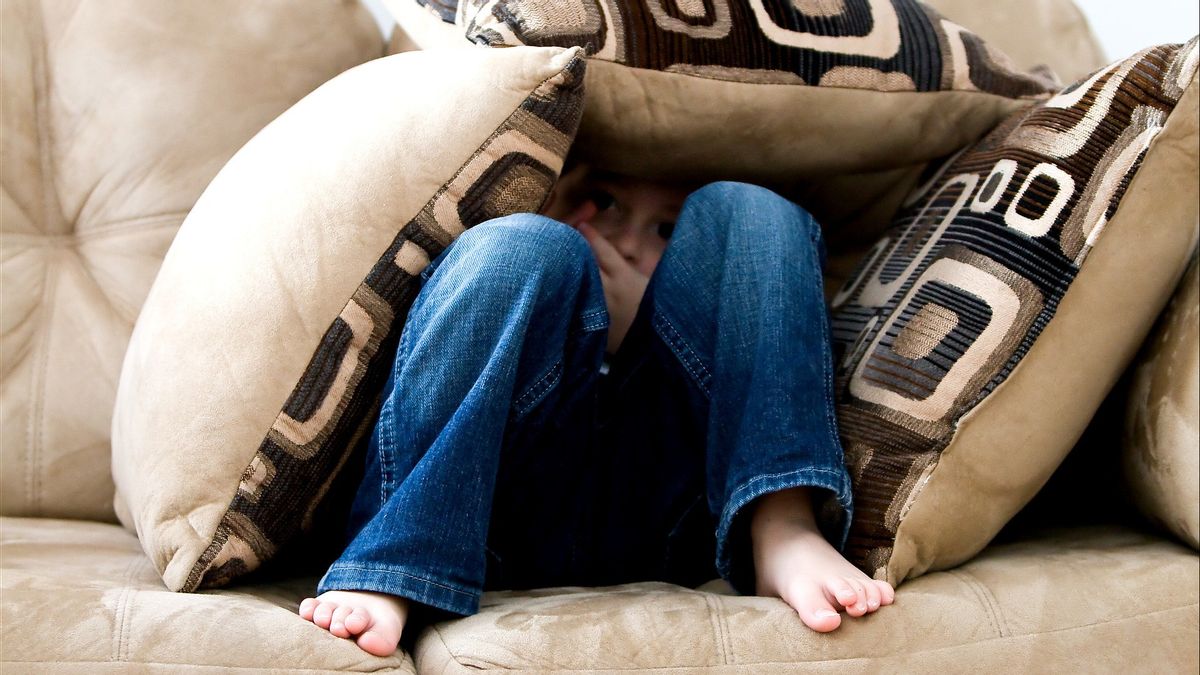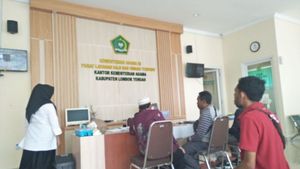JAKARTA - Cases of child abuse have gone viral on social media recently. The video depicts a boy being tortured by a girl. Later, the woman was found to be a household assistant (ART).
The violent video depicts a boy wearing a yellow T-shirt and red pants tied to his hands and feet. The boy's face was also covered using wallpaper.
This case was discovered by his parents. The parents reported the case to the police.
West Jakarta Metro Police Head of Criminal Investigation Unit Teuku Arsya Khadafi said the case was being handled by investigators from the Women and Children Protection Unit.
"There has been a report to us. We are currently investigating it by gathering clues and other evidence," said Arsya when confirmed, Wednesday, January 8.
Currently, the police are hunting down the household assistant who was the perpetrator. The police have videos that have gone viral on social media to find the perpetrators. The perpetrator ran away after carrying out the action.
Meanwhile, Chairman of the Indonesian Child Protection Commission (KPAI) Susanto said parental supervision of children needs to be improved. The goal is that there are no more cases like this. He also asked parents not to simply trust new people who work for their families.
"We regret this incident. This should be a concern and evaluation for all families in Indonesia so that when recruiting household assistants," he said.
He also asked the government to pay special attention to cases of child abuse. Moreover, the government has a child-friendly city or area development policy.
"Along with the government's policy to develop a child-friendly city or district and efforts to realize the golden generation of 2045, the problem of domestic workers should also be a serious concern," said Susanto.

Violence against children is physical, sexual, emotional abuse, or neglect of children. In the United States, the Centers for Disease Control and Prevention (CDC) defines child abuse as any act or series of acts of guardianship or negligence by a parent or other caregiver that results in harm, or potential harm, or poses a dangerous threat to a child.
Launching from hellosehat.com, violence against children has a bad impact. This impact can affect the child's development, mental health and physical health.
For the impact of child development, embryological and pediatric studies have shown that the brain develops at an incredible rate during the early developmental stages of infancy and childhood. Repeated exposure to violence and severe mental stress can affect the brain's stress response, making it more reactive and less adaptive.
This is what creates health problems for children in the future, including: retarded brain development; imbalance between social, emotional and cognitive abilities; specific language disorder; difficulty in vision, speech and hearing; increased risk of developing chronic diseases; and smoking, alcohol dependence and drug abuse.
Furthermore, the impact of violence on children also affects their mental health. This will make child victims of violence less confident and distrustful of adults. They also may not be able to express their true feelings, resulting in disturbances in controlling their emotions.
The longer the violence continues, the more serious the impact. In some situations, this difficulty can continue into adolescence and even adulthood. Violent trauma is a risk factor for chronic depression and anxiety disorders.
Some of the possible side effects of child abuse on their mental health can include: anxiety disorders and depression; dissociation (withdrawal; isolation); trauma flashback (PTSD); hard to focus; hard to sleep; eating disorders; uncomfortable with physical touch; tendency to self-injure; suicide attempt.
The impact of violence against other children will affect physical health. These include: bruising or swelling; sprains or fractures; Burns; difficulty walking or sitting; pain, bruising or bleeding in the reproductive area; sexually transmitted disease; poor hygiene
However, the signs of child abuse are not always obvious, and a child may not tell anyone what happened to them. Children may feel afraid that the offender will find out, and fear that the violence will get worse. Or, they may think that they have nothing to tell or that they won't be trusted.
The English, Chinese, Japanese, Arabic, and French versions are automatically generated by the AI. So there may still be inaccuracies in translating, please always see Indonesian as our main language. (system supported by DigitalSiber.id)













